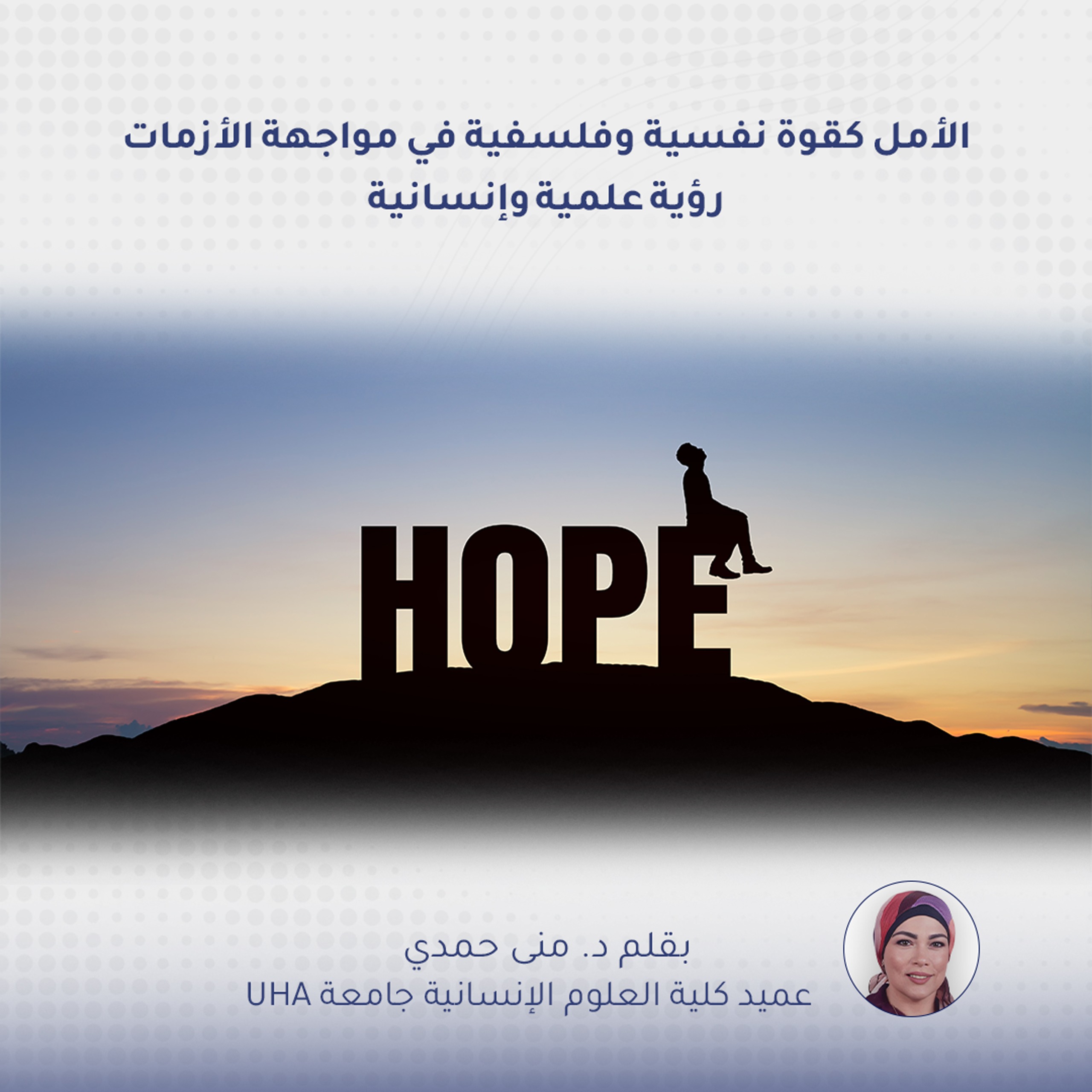
Hope as a Psychological and Philosophical Power in Facing Crises: A Scientific and Humanistic Perspective
5 months ago
بقلم : Dr. Mona Hamdi
Introduction
In difficult times, when crises intensify and losses accumulate, humans cling to what enables them to endure: hope.
Hope here is not merely a fleeting feeling or passing optimism, but rather a psychological and philosophical mechanism that drives people to search for meaning and to shape a better future, despite the harshness of reality.
In the Syrian context, which has witnessed a decade of continuous challenges, hope has emerged as an internal line of defense, preventing psychological collapse and transforming pain into energy for action.
Hope from a Philosophical Perspective
Since ancient times, philosophers have regarded hope as one of the pillars of human life:
-
Plato viewed it as a means of preserving inner balance amid life’s fluctuations.
-
Aristotle classified it among the virtues associated with courage, pushing individuals forward despite risks.
-
Kant considered hope one of the great existential questions: “What may I hope for?”—a question that connects knowledge with will and morality.
-
In the modern era, Viktor Frankl linked hope to the “will to meaning,” believing that those who find meaning in their lives can endure any suffering.
Existential philosophy sees hope not as passive waiting, but as a conscious decision one makes to face the unknown.
Hope in Psychology
Modern psychology defines hope within the framework of Hope Theory (Snyder, 2002), which is based on:
-
Agency (Willpower): The belief in one’s ability to influence one’s life.
-
Pathways: The ability to find multiple routes to achieve a goal, even when one path is blocked.
Studies show that hope increases resilience in adversity, reduces rates of depression, and improves both physical and psychological health (Gallagher & Lopez, 2009).
Hope as a Factor in Psychological Recovery
In psychotherapy, hope is used as an effective tool to support patients, particularly those with depression or trauma.
According to Abdel Rahman (2018), “Enhancing hope restores the individual’s ability to imagine the future, which is the first step on the path to recovery.”
Recent Arab research also indicates that hope reduces the impact of post-traumatic stress disorder among Syrian displaced persons (Hussein, 2020).
Hope in the Syrian Context
In Syrians’ daily lives, hope manifests in practical forms:
-
Education amid destruction: Students returning to schools under the simplest conditions.
-
Small enterprises: Families starting modest businesses to secure their livelihood.
-
Art and creativity: Painters and musicians documenting hope amidst ruins.
These manifestations prove that hope is not an abstract idea, but a social force that builds the future.
Hope and Psychological Resilience
Hope and psychological resilience are intertwined; hope provides resilience with direction and meaning, while resilience gives hope the ability to endure.
Researcher Masten (2014) calls this phenomenon “ordinary magic,” meaning that hope and resilience are natural human capacities that become heroic in times of crisis.
Strategies to Enhance Hope
-
Flexible thinking: Viewing obstacles as opportunities for learning.
-
Community engagement: Sharing local success stories to inspire others.
-
Arts and cultural activities: Serving as therapeutic and collective tools.
-
Setting achievable goals: Breaking down major projects into smaller steps.
-
Lifelong learning: Linking the present to the future.
Conclusion
Hope is not a luxury but a condition for sound mental health. In Syria, hope has become an inner act of resistance against collapse, and a bridge between the present and the future.
When adopted as both an individual and collective value, it can transform tragedy into a starting point for renewal.
References
Arabic References
-
Abdel Rahman, M. A. (2018). Hope and its relation to psychological adjustment among a sample of patients with depression. Journal of Psychological Sciences, 12(3), 45–66. Cairo: Egyptian Society for Psychological Sciences.
-
Hussein, A. A. (2020). Hope as a protective factor against post-traumatic stress disorder among Syrian displaced persons. Journal of Social Studies, 15(2), 122–140. Damascus: University of Damascus, Faculty of Education.
-
Abu Al-Diyar, M. N. (2012). The Psychology of Hope (A psychological–educational–Islamic perspective). Kuwait: Author.
Foreign References
-
Frankl, V. E. (2006). Man’s search for meaning (I. Lasch, Trans.). Beacon Press. (Original work published 1946)
-
Gallagher, M. W., & Lopez, S. J. (2009). Positive expectancies and mental health: Identifying the unique contributions of hope and optimism. The Journal of Positive Psychology, 4(6), 548–556. https://doi.org/10.1080/17439760903157166
-
Masten, A. S. (2014). Ordinary magic: Resilience in development. Guilford Press.
-
Snyder, C. R. (2002). Hope theory: Rainbows in the mind. Psychological Inquiry, 13(4), 249–275.

